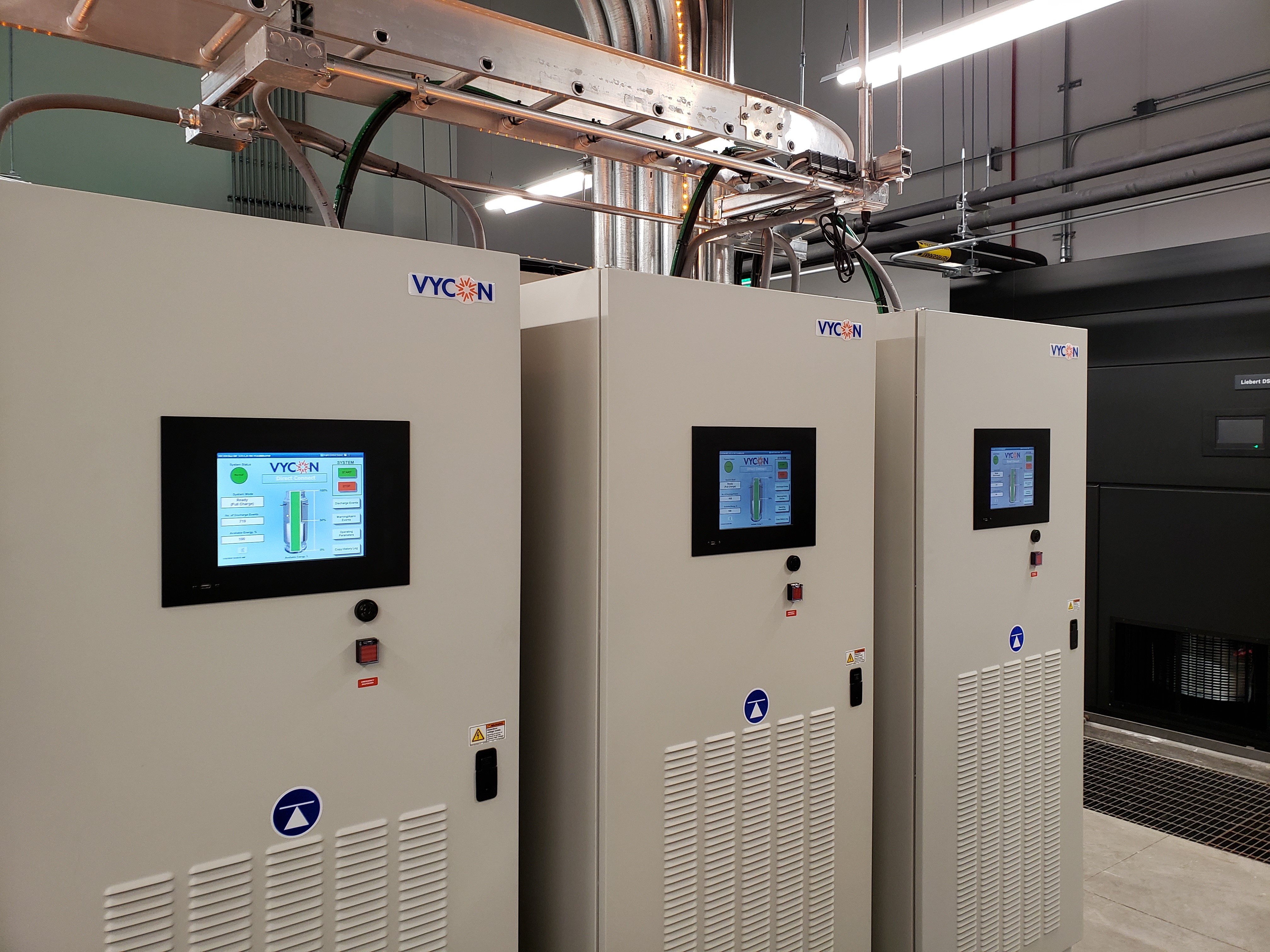Dallas-based DataBank, a leading provider of enterprise-class data centers, connectivity and managed services, knows first-hand how critical it is to have a highly reliable and efficient power and cooling foundation for its world-class colocation facilities. DataBank coined the phrase, “Data Center Evolved” and has invested in the infrastructure, people and framework that allows customers to configure the solution that best fits their business needs. Whether it’s a mission-critical never go-down colocation environment, a PCI-DSS compliant private cloud, or a secure on-ramp to multiple public cloud availability zones, DataBank has engineered its data center platform to provide the flexibility, security, and uptime customers require.
Uptime and reliability are at the heart of any data center provider, but DataBank takes the mission further by investigating and ultimately incorporating state-of-the-art infrastructure technology that provides users with the highest level of services. One such technology is flywheel energy storage.
The Challenge
To maximize uptime, the facility’s uninterruptible power systems (UPS), power distribution units (PDUs), generators and other power equipment must operate at their highest level. If there’s a power outage, it could mean devastating circumstances for DataBank’s customers and a loss of trust in DataBank. “Weather-related power transients are not uncommon, and we require all of our power infrastructure systems to be at the ready at all times,” said Danny Allen, DataBank’s vice president of engineering.
The UPS batteries in DataBank’s 100,000 square foot facility in Plano, Texas as well as at its Tier 3 data centers in Kansas City, Pittsburgh and at Georgia Tech in Atlanta, were coming to the end of their useful life. Allen wanted to incorporate a more reliable, economical and greener alternative to the lead-acid batteries they were using with their UPS systems.
While valve-regulated lead-acid (VRLA) batteries have long been the mainstay for power backup with UPSs, they have their challenges. Unpredictability, frequent replacements, cooling requirements, large real-estate footprint and battery spill containment and compliance are not minor issues, especially in the case of DataBank, where there are many facilities in various locations with battery banks.
A More Reliable and Predictable Energy Storage Solution
Today’s flywheel technology enables the flywheel to charge and discharge at high rates for countless cycles without degradation throughout a typical 20-year life – unlike traditional VRLA batteries that begin to deteriorate in well under half that time.
Having previous experience with the reliability, cost and green aspects of flywheels at DataBank’s other data center facilities, Allen was confident in his choice to deploy 36 of VYCON’s VDC XXE 300kW flywheel systems along with 12 of their VDC 450kW XXT models to start up in January 2020.
All of the flywheels are paired with Mitsubishi 9900B-750kVA three-phase, on-line double-conversion UPS systems. “The dependable reliability and very low maintenance costs of the VYCON flywheels along with their green advantages, make it an easy decision to replace lead-acid batteries,” commented Allen. “When the flywheels are spinning, it’s not a guessing game if they’re going to work. If there’s anything wrong, they won’t run. With batteries, one never knows if they’ll work until they are under load,” added John Jeter, Director of Sales for VYCON, Inc.
The VYCON VDC Flywheel Advantage
VYCON’s VDC Direct Connect UPS backup systems provide instantaneous and reliable power for today’s mission-critical applications. Compatible with all major brands of three-phase UPSs, the scalable, plug-and-play VDC models ensure high-quality power 24×7 and are the perfect solution for users needing a more reliable, affordable and greener approach to backup power.

Certified by most major vendors of three-phase UPSs, the systems interface with the DC bus of the UPS just like a bank of batteries would, receiving charging current from the UPS and providing DC current to the UPS inverter during discharge. Upon loss of utility power to the UPS, up to 750kW of regulated DC power per VDC unit is instantly delivered to the UPS. This provides the backup power needed to start-up and transition to DataBank’s 2.5-megawatt generators during a prolonged utility outage. Typical VDC configurations can provide from 15 seconds to more than two minutes of backup power (depending upon load levels and number of flywheel modules). Since the average backup generator requires less than 10 seconds to come on-line, the flywheel provides plenty of time for a smooth power transfer to the onsite generators.
Low Cost of Ownership
The VDC flywheels are capable of hundreds of full charge and discharge cycles over the life of the system with no degradation in voltage, power, or storage – unlike batteries. Flywheel technology is also considered the only green technology of the energy storage options.
Unlike other flywheel technologies, the VDC flywheel uses a contact-free magnetic levitation system, eliminating the need for mechanical bearings – saving customers thousands of dollars in bearing replacement every 3 to 4 years. In addition, using a flywheel versus a five-minute VRLA battery bank can provide $100,000 to $200,000 in cost savings per flywheel deployed over its 20-year lifetime.
The benefits compared to using chemical batteries include:
- Efficiency – charges/discharges are made with very small losses; as an electrical storage system a flywheel can have efficiencies over 99%;
- Maintenance – flywheels are not temperature sensitive and do not require a 77ºF (25°C) environment like VRLA batteries, nor do they have the chemical recycling/maintenance issues of conventional batteries;
- Lifespan – flywheels have a typical lifespan of approximately 20 years, while a lead-acid battery needs to be replaced every three to seven years (and even sooner for high cycle applications or at temperatures above 77°F (25ºC).
Real-World Experience
VYCON’s VDC flywheel systems are installed in thousands of mission-critical facilities around the world. For DataBank, the VDC units have already been put to the test. “During a recent storm, the VYCON flywheels performed as expected. While system reliability is our priority, by eliminating the batteries, we’re saving at least $10,000 per year in battery maintenance and replacement.”
Flywheel energy storage has become a strategic solution for customers’ mission-critical applications that require reliable, predictable backup power while reducing carbon footprint. At DataBank, the flywheel energy storage solutions help maintain its very efficient Power Usage Effectiveness (PUE) of 1.3.

